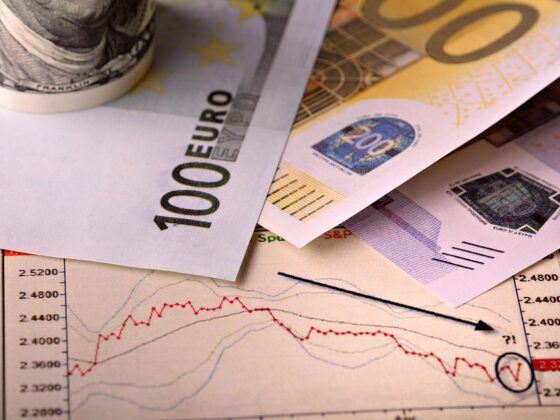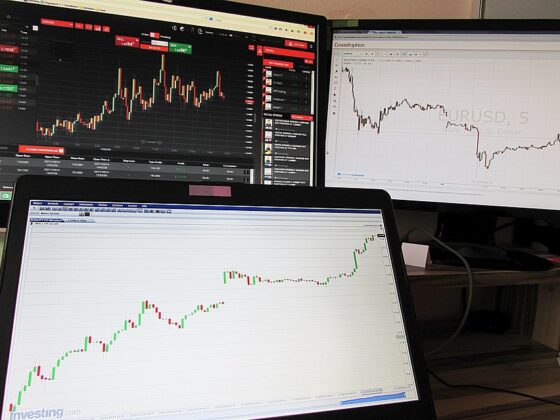The foreign exchange (forex) market is the largest and most liquid financial market in the world, with trillions of dollars traded daily. Forex trading involves buying and selling different currencies in order to make a profit. Like any other form of trading, forex trading can be risky, but with the right knowledge and strategies, traders can stay ahead of the game and increase their chances of success.
Here are some top trading tips for forex traders to help them navigate the market and make profitable trades:
1. Understand the basics: Before diving into forex trading, it is important to understand the basics of how the market works. Learn about different currency pairs, how to read currency charts, and the factors that influence exchange rates. This knowledge will help you make informed decisions and avoid making costly mistakes.
2. Develop a trading plan: A trading plan is essential for successful forex trading. This plan should outline your trading goals, risk tolerance, and strategies for entering and exiting trades. Stick to your plan and avoid making impulsive decisions based on emotions.
3. Use a demo account: Before risking real money, practice trading with a demo account. This will help you familiarize yourself with the trading platform and test out different strategies without any financial risk. Once you feel confident, you can start trading with real money.
4. Start small: When starting out in forex trading, it is best to start with a small investment. This will help you manage risk and avoid losing a large amount of money. As you gain experience and confidence, you can gradually increase your trading size.
5. Use stop-loss orders: One of the key risk management strategies in forex trading is to use stop-loss orders. These orders automatically close a trade if the price reaches a certain level, limiting your losses. Make sure to set stop-loss orders for every trade to protect your capital.
6. Stay informed: The forex market is constantly changing, with economic data releases, geopolitical events, and central bank decisions all impacting exchange rates. Stay informed about market news and events that could affect your trades. Use economic calendars and news sources to stay up-to-date.
7. Manage your emotions: Emotions such as fear and greed can cloud your judgment and lead to poor trading decisions. Keep your emotions in check and stick to your trading plan. Accept that losses are a part of trading and learn from your mistakes.
8. Diversify your trades: Instead of focusing on one currency pair, consider diversifying your trades across different pairs. This can help spread risk and increase your chances of making profitable trades. Keep in mind that correlation between currency pairs should also be considered.
9. Use technical analysis: Technical analysis involves using historical price data to predict future price movements. Learn how to read charts and use technical indicators such as moving averages, RSI, and MACD to identify trends and entry/exit points.
10. Learn from others: Join online forums, follow experienced traders on social media, and attend webinars and workshops to learn from others in the forex trading community. Networking with other traders can provide valuable insights and tips for improving your trading skills.
FAQs:
Q: How much money do I need to start forex trading?
A: The amount of money needed to start forex trading can vary depending on the broker and account type you choose. Some brokers allow you to start trading with as little as $100, while others may require a larger initial investment. It is important to only invest money that you can afford to lose.
Q: What is leverage in forex trading?
A: Leverage allows traders to control a larger position with a smaller amount of capital. For example, if you have a leverage of 1:100, you can control a $10,000 position with only $100 of your own money. While leverage can amplify profits, it also increases the risk of losses, so it is important to use leverage wisely.
Q: How do I choose a forex broker?
A: When choosing a forex broker, consider factors such as regulation, trading platforms offered, fees and commissions, customer service, and trading tools. Make sure to do your research and read reviews from other traders before making a decision.
Q: Is forex trading legal?
A: Forex trading is legal in most countries, but regulations and restrictions can vary. Make sure to check the laws in your country and choose a regulated broker to ensure that your funds are safe and protected.
In conclusion, forex trading can be a lucrative opportunity for those who are willing to put in the time and effort to learn the market and develop their trading skills. By following these top trading tips and staying informed about market news, forex traders can stay ahead of the game and increase their chances of success. Remember to always trade responsibly and never risk more money than you can afford to lose.











